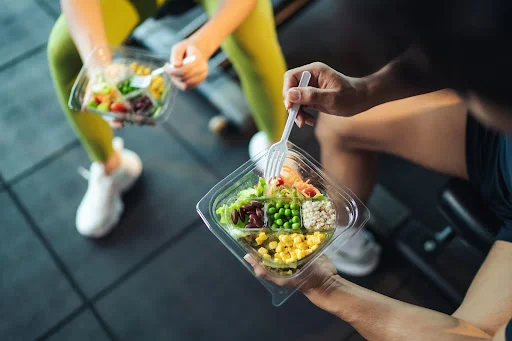The Bernard Rodriguez Journal
Exploring the latest trends and stories in news and lifestyle.
From Skinny to Strong: The Diet Dilemma
Unlock the secrets to transforming your body! Discover the ultimate diet dilemma and go from skinny to strong today!
Understanding Macronutrients: Fueling Your Transformation from Skinny to Strong
Understanding macronutrients is crucial for anyone looking to transform their physique, especially if you're aiming to go from skinny to strong. Macronutrients, which include proteins, fats, and carbohydrates, serve as the fundamental building blocks of our diet and play a significant role in fueling our bodies. By focusing on the right balance of these nutrients, you can enhance muscle growth, boost energy levels, and improve overall performance. A well-rounded approach to your diet will not only support your transformation journey but will also ensure you’re nourishing your body in the process.
To effectively use macronutrients in your diet, it's essential to understand the specific roles each one plays:
- Proteins are vital for muscle repair and growth, making them a top priority for anyone looking to increase muscle mass.
- Carbohydrates provide the energy required for intense workouts, ensuring you have the stamina to push through your training sessions.
- Fats contribute to hormone production and overall health, helping to keep your body's systems functioning optimally.
By strategically adjusting your intake of these macronutrients, you can fuel your body for a successful transformation from skinny to strong.

Top 5 Meal Prep Tips for Building Muscle and Gaining Weight
Building muscle and gaining weight requires a strategic approach to nutrition, and meal prep is a vital component of that strategy. To ensure you're fueling your body effectively, start by planning your meals ahead of time. A well-structured meal plan allows you to consistently consume the necessary macronutrients—proteins, carbohydrates, and fats—that support muscle growth. Focus on including nutrient-dense foods such as lean meats, whole grains, and healthy fats, and aim to prepare a week's worth of meals in one go. This not only saves time but also reduces the temptation to opt for unhealthy snacks.
Another important tip is to incorporate variety into your meals. Eating the same foods can lead to nutritional deficiencies and may decrease your motivation for meal prep. Aim for a range of proteins, veggies, and complex carbs. Consider using different cooking methods like grilling, baking, or steaming to keep meals interesting. Additionally, make use of bulk cooking, where you prepare large portions of a single dish that can be stored and reheated throughout the week. Lastly, always have healthy snacks on hand, such as nuts or protein bars, to maintain your caloric intake and support muscle recovery between meals.
What Should I Eat to Go from Skinny to Strong?
To transition from being skinny to strong, your diet needs to focus on nutrient-dense foods that promote muscle growth and recovery. Incorporate a combination of protein, healthy fats, and carbohydrates into your meals. Consider including sources like:
- Lean meats such as chicken, turkey, and beef for high-quality protein.
- Fish, like salmon and tuna, which provide omega-3 fatty acids and additional protein.
- Dairy products like Greek yogurt and cottage cheese for calcium and more protein.
- Plant-based proteins such as lentils, beans, and quinoa.
In addition to protein, incorporating healthy fats is crucial. Foods such as avocados, nuts, and olive oil not only provide energy but also support hormone production vital for muscle growth. Don't forget about the importance of carbohydrates for fueling your workouts. Include whole grains like brown rice, oats, and sweet potatoes in your diet. Aim to consume a well-balanced meal every few hours, consisting of:
- One serving of protein.
- One serving of healthy fat.
- One serving of complex carbohydrates.
This balanced approach will support your journey from skinny to strong.